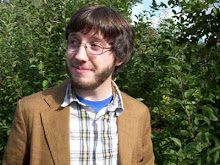I've been on a nonfiction kick the past few weeks. Since I finished "Gravity's Rainbow," I've read two great nonfiction books, a genre that for some reason, I don't read much of. I'm not much of a memoir or biography fan, preferring to learn about people through the lens of fiction (even if they're historical figures, like Tesla in "The Invention of Everything Else").
The two books I've read are Mark Harris' "Pictures at a Revolution" and Dave Eggers' "Zeitoun." They're both excellent, if extremely different, works of nonfiction, the former a big book about the 1968 Academy Awards and the five films nominated for Best Picture, and the latter a story about a man in New Orleans after Hurricane Katrina who begins rescuing people in his canoe, only to be arrested and put into several prisons.
"Pictures at a Revolution" is definitely a film nerd book, about the end of the old studio system and the birth of the "second golden age," where filmmakers like Francis Ford Coppola and Martin Scorcese took the reins of the studios and made some of their most incredible movies. These filmmakers, often called the "film school brats" completely reinvented the movie business, bringing a European sensibility that they had picked up in college (for a great look at the era after this book, rent the movie "A Decade Under the Influence"). In my undergraduate film classes, we covered this era pretty briefly, but the main thing I remember is that the big musicals, trying to jump on the success of "The Sound of Music," really destroyed the studios: "Paint Your Wagon," "Camelot," and the one featured in this book, "Doctor Doolittle." These were movies with huge budgets that were completely out of touch with the realities of moviegoers, and they were completely destroyed by movies like "Bonnie and Clyde" and "The Graduate," both nominated for Best Picture. The stories of each individual movie (including the eventual winner, "In the Heat of the Night," and "Guess Who's Coming to Dinner") are incredibly researched and detailed, and the overall story, about the movie business blinding itself to the changing realities of their viewers, is really interesting.
"Zeitoun," about a contractor who stayed in New Orleans during Hurricane Katrina, is completely harrowing. Zeitoun gets arrested in a building he owns, and without due process, a phone call, or a hearing, he is sent to "Camp Greyhound," a prison set up outside of the city's bus terminal. Before his arrest, he sets out in a secondhand canoe to rescue anyone who needs help in the city, including animals and elderly neighbors. He is arrested on suspicion of looting, without being questioned or formally charged. The story is insane, mostly because you do not want to believe this happened in America. The fact that a major American city can come under martial law, the rights of citizens left in the care of hired mercenaries like Blackwater, is just unbelieveable. And all of this happening as people are dying without help from the government agencies they depend on. It's really shocking and frustrating, but the book somehow manages, at the end, to be really hopeful, a story about unshakeable faith in the promise of the country.
I really recommend both of these books. Like I said, I'm not really a nonfiction reader, but these stories were incredible. I think I'm going to jump back to fiction now, but I'm not sure what book I'm going to read. Any suggestions?
Monday, December 7, 2009
(Non) Fiction Mondays: Zeitoun and Pictures at a Revolution
Labels:
Books,
Fiction Mondays
Subscribe to:
Post Comments (Atom)

No comments:
Post a Comment